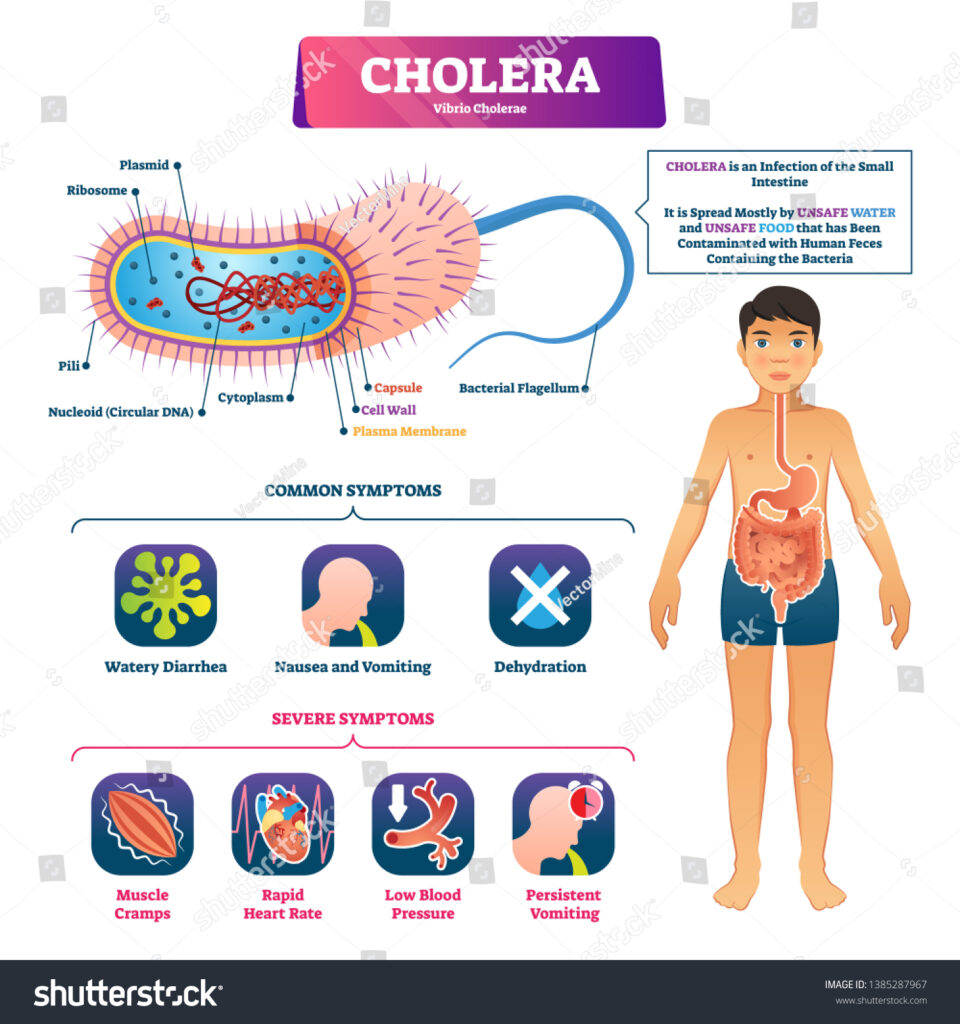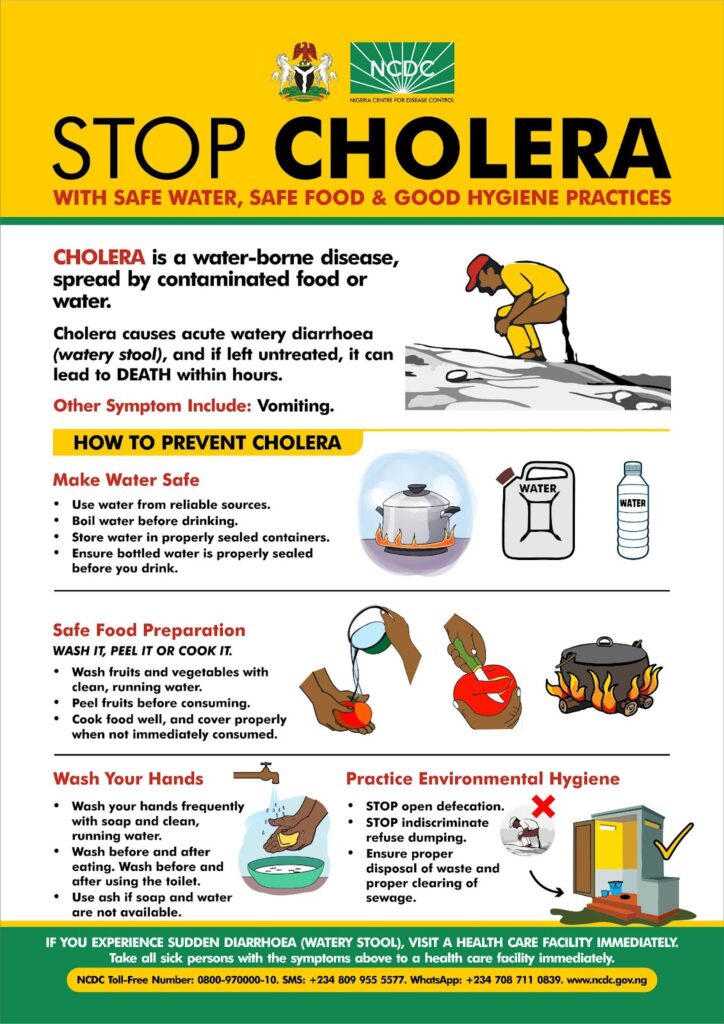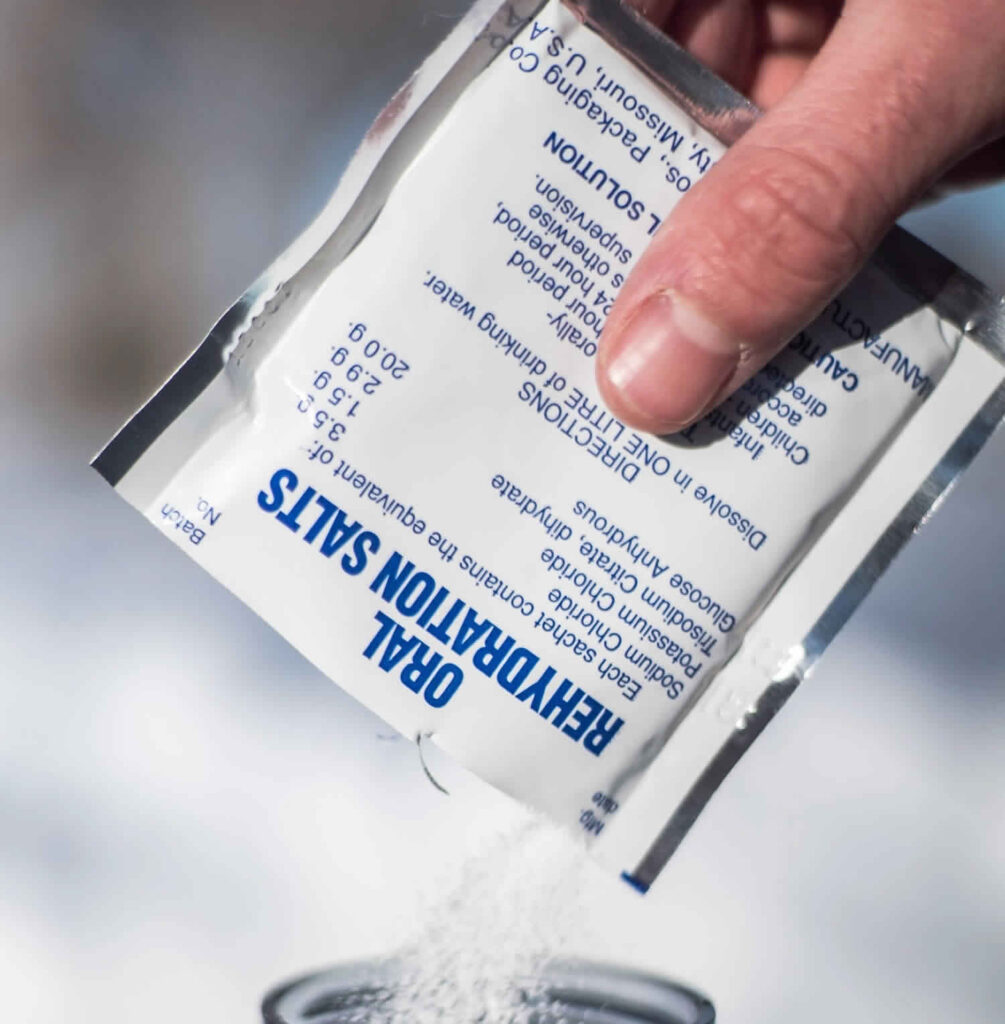As you navigate the frightening situation of the latest cholera outbreak in Lagos, it is critical to arm yourself with extensive knowledge in order to protect yourself and your loved ones. Here’s all you need to know about cholera, tailored for you.
What is Cholera?
You might wonder what cholera is and how it spreads. Cholera is a highly infectious disease caused by the bacterium Vibrio cholerae.

It mainly spreads through contaminated water and food, especially in areas with poor sanitation. Once ingested, the bacterium infects the intestines leading to severe diarrhea and dehydration.
Symptoms and Diagnosis of Cholera
Cholera’s main symptom is watery diarrhea. This extreme diarrhea can result in serious dehydration. Anyone could feel nauseated and throw up. It causes severe dehydration, which can be fatal. Someone may feel irritable, weary, or have a dry mouth. In addition, thirst, sunken eyes, and low blood pressure are all indications of a significant problem.

Doctors frequently diagnose cholera based on their suspicions. They test stool samples for Vibrio cholerae. A verified diagnosis requires the detection of this bacteria in tests.
Rapid diagnostics can detect it rapidly, but they are not as effective as lab tests. The most reliable way to confirm cholera is through laboratory tests on stool samples.
Prevention
Staying safe from cholera involves some key steps. It’s important to have safe water, clean toilets, and wash your hands well. This helps stop it and other diseases passed through water. When people can’t easily get clean water or use good toilets, it is more likely to spread. This is because dirty water carries the disease. By making clean water and good toilets available, we can lower cholera rates.
“Preventing cholera requires a comprehensive approach that addresses both the sources of contamination and the treatment of individuals,” shares Dr. Lisa Johnson, a top expert in public health. “Access to safe water and sanitation is crucial in reducing the risk of cholera, and oral rehydration solution remains a vital tool in managing and preventing dehydration.

With these in mind, here are some tips for cholera prevention:
- Drink safe water from a clean and reliable source. If unsure of water quality, boil it or use water purification methods.
- Practice good hygiene, including regular handwashing with soap and water.
- Use appropriate sanitation facilities and dispose of waste properly to prevent contamination of water sources.
- Avoid consuming raw or improperly cooked seafood, as it may be contaminated with Vibrio cholerae.
- Adhere to food safety practices, such as washing fruits and vegetables thoroughly and avoiding street food with questionable hygiene.
If you suspect cholera or exhibit symptoms, seek medical help immediately. Time is of the essence in treating the condition.
Treatment
Oral rehydration solution, or ORS, is critical for treating cholera. It is a combination of minerals and water designed to prevent dehydration caused by diarrhea. If the patient has a mild condition, ORS can be administered at home. Make it by combining water, salt, and sugar. To prevent severe dehydration, ORS must be administered rapidly.

If cholera is severe and produces significant dehydration, hospitalization may be required. Doctors there use intravenous fluids to rehydrate patients quickly. These fluids are absorbed directly into the bloodstream, replacing lost water and minerals. Doctors may also administer antibiotics as these medications can reduce the duration and severity of the illness. Moreover, they stop the disease from spreading.
Zinc supplementation helps kids under 5 with cholera get better faster. Zinc shortens the time they have diarrhea and aids their recovery. But remember, only doctors should decide to add zinc or antibiotics.
A Word From HealthFacts to You
By arming yourself with knowledge and taking proactive measures, you can play a vital role in preventing the spread of cholera and safeguarding the health of yourself and those around you.
Together, we can combat this outbreak and create a healthier future for Lagos and beyond.
Stay healthy! Stay safe!









